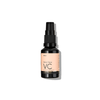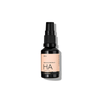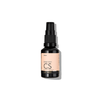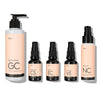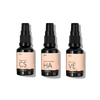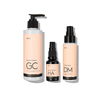Say Goodbye to Dry Skin: How the Right Face Moisturiser Can Give You a Hydrated, Healthy Glow
We've all been there - waking up with dry, dull skin that can feel like a major drag. But don't let it get you down: by choosing the best face moisturiser, you can banish dry skin in no time! Whether your dehydrated complexion is caused by cold weather or harsh soaps, hydration is just a few applications away no matter what age or type of skin you have. So go ahead and say goodbye to flaky patches – face moisturisers are here to save the day!

What is a moisturiser?
Moisturisers are products that help to keep your skin hydrated by adding moisture and locking it in. They work by creating a barrier between your skin and the environment, preventing moisture from escaping and protecting your skin from external factors that can cause dryness. In addition to keeping your skin hydrated, moisturisers can also help to improve the overall appearance of your skin by reducing the appearance of fine lines and wrinkles, improving skin texture and tone, and promoting a healthy, youthful glow.
How to choose the right one for your skin
When it comes to choosing the right face moisturiser for your skin, there are a few things to keep in mind. First and foremost, you want to choose a moisturiser that is designed for your specific skin type. For example, if you have oily skin, you may want to choose a lightweight, oil-free moisturiser that won't clog your pores. On the other hand, if you have dry skin, you may need a heavier, more emollient moisturiser that will provide longer-lasting hydration.
Another factor to consider when choosing a face moisturiser is the ingredients. Look for moisturisers that contain ingredients like hyaluronic acid or ceramides derived from plants, which can help to attract and retain moisture in the skin. These ingredients are particularly effective for people with dry or dehydrated skin. Additionally, look for moisturisers that contain antioxidants like Vitamin C and E, which can help to protect your skin from environmental stressors and promote a healthy, youthful appearance.
Remember this for the best results
One common mistake that many people make when it comes to moisturising is using too little or too much product. It's important to use enough moisturiser to cover your face and neck fully, but not so much that it feels heavy or greasy. A good rule of thumb is to use a pea-sized amount for your entire face and neck, and then adjust as needed based on how your skin feels.
It's also important to remember that moisturisers are not a one-size-fits-all solution. If you have specific concerns about your skin, such as acne or rosacea, you may need to choose a moisturiser that is specifically formulated to address those concerns. Similarly, if you have sensitive skin, you may want to look for a fragrance-free moisturiser that won't irritate your skin.
In addition to using a moisturiser, there are a few other things you can do to keep your skin hydrated and healthy. One important step is to drink plenty of water throughout the day. When you're dehydrated, your skin can become dry and dull, so staying hydrated is key to maintaining a healthy, glowing complexion.
Another important step is to avoid harsh cleansers and exfoliants that can strip your skin of its natural oils. Instead, opt for gentle, hydrating cleansers that won't dry out your skin, and use exfoliants sparingly to avoid over-exfoliating.
Take a look at your day to day
Aside from choosing the right moisturiser and taking care of your skin, there are also lifestyle changes you can make to help prevent dry skin. For instance, avoid taking long hot showers or baths, as this can strip your skin of its natural oils. Instead, opt for shorter, lukewarm showers or baths to avoid drying out your skin. Additionally, it's important to wear sunscreen every day, even on cloudy or overcast days, to protect your skin from damaging UV rays.
Eating a healthy diet can also help to keep your skin hydrated and healthy. Foods that are high in water content, such as watermelon, cucumbers, and celery, can help to hydrate your skin from the inside out. Additionally, foods that are high in healthy fats, such as avocado, nuts, and fatty fish, can help to improve the overall health of your skin.
Seek help from an expert
If you find that your skin is still dry or dehydrated despite your best efforts, consider seeing a dermatologist. A dermatologist can help to identify the underlying cause of your dry skin and recommend a treatment plan that is tailored to your specific needs. They may also recommend prescription-strength moisturisers or other topical treatments to help soothe and hydrate your skin.
In conclusion, dry skin can be a frustrating problem, but it doesn't have to be a permanent one. By choosing the right moisturiser for your skin type and using it regularly, you can keep your skin hydrated, healthy, and glowing. Remember to pay attention to the ingredients in your skin care products, use enough product, and take other steps to keep your skin hydrated and healthy, and you'll be on your way to saying goodbye to dry skin for good.
